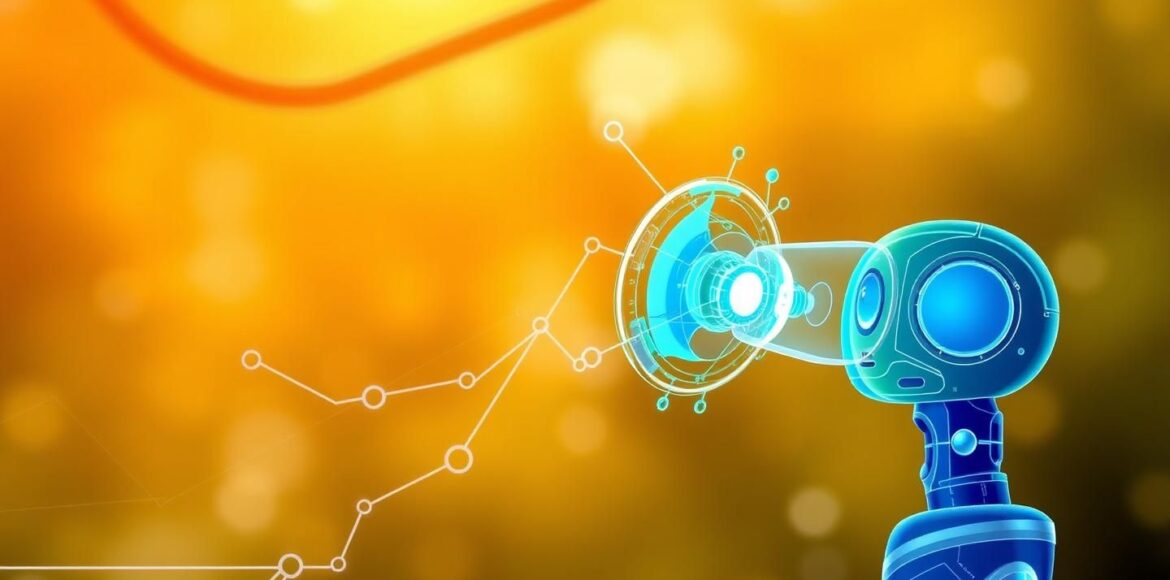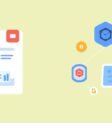
The Impact of AI Agents in Marketing: Transforming Strategy, Automation, and Engagement
As digital transformation accelerates across industries, AI agents in marketing have moved from being futuristic concepts to essential tools that redefine how brands interact with customers, optimize campaigns, and streamline operations. Marketers are tapping into the power of autonomous software capable of interpreting data, learning from interactions, and making decisions with minimal human oversight. This article delves into the evolution of AI agents in marketing, examining their core benefits, practical applications, real-world case studies, selection criteria, ethical considerations, and the emerging trends that will shape the future of data-driven engagement.
What Are AI Agents in Marketing?
AI agents are autonomous software programs engineered to tackle specific tasks by analyzing complex datasets, learning from every interaction, and executing decisions with little to no human input. In the dynamic field of marketing, these AI agents leverage cutting-edge advances in machine learning, natural language processing, and data analytics to automate and optimize core processes. This includes activities such as customer segmentation, campaign management, personalized content delivery, and real-time support.
Recent industry data shows that 61% of marketers already incorporate AI into their activities, ranging from chatbots that engage consumers to advanced tools that predict trends and analyze behavior (Salesforce). By parsing vast datasets at unprecedented speed, AI agents provide marketers with invaluable insights, enabling highly targeted campaigns and more satisfying customer experiences.
Key transformations created by AI agents in marketing include:
- Enhanced personalization: AI-driven recommendation engines suggest products based on individual browsing patterns.
- Increased operational efficiency: Automating repetitive processes saves time and reduces costs.
- Smarter decision-making: Predictive analytics forecast conversion likelihood and trends for agile strategy refinement.
As digital marketing continues to evolve, AI agents are poised to become indispensable partners in driving campaign innovation and delivering measurable results.
The Key Benefits of AI Agents in Marketing
Marketers are rapidly embracing AI agents to navigate modern complexities and gain a competitive edge. Here’s a closer look at the primary benefits:
1. Marketing Automation
AI agents handle repetitive tasks such as email scheduling, lead scoring, and social media posting. This frees human teams to focus on creative strategy and high-value initiatives, resulting in considerable time and cost savings (HubSpot).
2. Improved Efficiency
With the capability to analyze massive amounts of data nearly instantaneously, AI agents empower marketers to optimize ad spends, identify high-value segments, and make swift, informed decisions — greatly accelerating campaign performance and boosting ROI (McKinsey).
3. Advanced Personalization
AI agents craft personalized messages, product recommendations, and experiences at scale by leveraging granular customer data. This leads to sustained engagement and deeper loyalty, as seen in leading retail and e-commerce brands. Real-time dynamic content ensures every customer receives the right message at the right moment.
These three pillars — automation, efficiency, and personalization — are the driving forces behind the mass adoption of AI agents in marketing, fundamentally reimagining how brands connect with audiences.
Learn more about cost-saving strategies with AI agents in marketing.
Top Use Cases and Applications for AI Agents in Marketing
AI agents have become key enablers across several marketing functions, helping businesses automate, optimize, and deliver exceptional customer experiences:
Content Creation
Tools like Jasper and Copy.ai leverage large-scale language models to generate engaging, brand-aligned blog posts, social media updates, and email campaigns — dramatically lowering content production time while tailoring messaging to target demographics.
Customer Support
AI-powered chatbots and virtual assistants, such as Intercom and Drift, provide 24/7 real-time support. They resolve common inquiries, route customers efficiently, and learn from past interactions to continually enhance the support experience (Gartner).
Predictive Analytics
Leveraging machine learning, marketers employ AI agents to process huge datasets, identify emerging trends, and forecast behaviors. Tools like Salesforce Einstein and HubSpot AI empower marketers to refine targeting, optimize content strategies, and anticipate market shifts with data-driven predictive insights (McKinsey).
Through these applications, AI agents not only automate routine tasks but unlock actionable insights, elevating campaign effectiveness and driving sustained business growth.
Success Stories: Real-World Case Studies of AI Agents in Marketing
A growing roster of brands employs AI agents in marketing to achieve dramatic improvements in engagement, conversion, and customer experience. Here are a few notable examples:
- Sephora: Leveraged an AI chatbot on Facebook Messenger to assist with product discovery and appointment bookings, resulting in an 11% higher conversion rate and significantly faster customer service (Forbes).
- Nike: Using AI-powered personalization for email marketing, Nike saw a 40% increase in open rates and a 30% rise in click-throughs by offering product recommendations tailored to user behavior (Marketing Dive).
- Starbucks: Through its AI agent “DeepBrew,” the brand used purchasing data to personalize rewards and marketing within their mobile app, leading to higher engagement and greater offer redemption (Starbucks News).
- Coca-Cola: Using AI for real-time sentiment analysis, Coca-Cola enhanced the relevancy of digital ads, increasing engagement by up to 4% during campaigns (Coca-Cola Company).
These success stories underscore the powerful impact of deploying AI agents in marketing — from boosting conversion rates to elevating the overall customer journey.
Choosing the Right AI Agents for Your Marketing Strategy
Selecting the most suitable AI agents in marketing starts with a clear assessment of your business objectives and existing workflows. Pinpoint the specific challenges you seek to address — be it content creation, data analysis, segmentation, or campaign management. Outline priorities to ensure AI tools deliver immediate value.
Key factors to consider when evaluating AI agents include:
- Integration Capabilities: Choose solutions compatible with your current marketing stack (e.g., CRMs, CMSs, analytics tools).
- Performance & Scalability: Seek platforms proven to handle your data volume and complexity as you grow, validated through case studies and user feedback.
- Ease of Use: Look for intuitive interfaces, robust automation features, and customizable reporting.
- Ethics & Transparency: Opt for vendors that address model explainability, bias mitigation, and data privacy, ensuring compliance with regulations such as GDPR.
Involve your marketing team in pilot programs to gather feedback on usability and outcomes. Implement robust training and set clear KPIs to measure success. Schedule periodic reviews to ensure your AI investments continue to align with shifting market trends and business needs (Gartner).
Challenges and Ethical Considerations of AI Agents in Marketing
Despite their many advantages, deploying AI agents in marketing also raises significant challenges and ethical questions:
Data Privacy & Security
Handling vast troves of customer data increases the risk of privacy breaches. Compliance with regulations like GDPR and CCPA is mandatory, but as data collection becomes increasingly sophisticated, marketers must remain vigilant and transparent about data use (i-SCOOP).
Bias and Fairness
AI models inherited from imperfect or biased training datasets can unintentionally reinforce stereotypes or prejudice, impacting brand reputation. Regular audits and a commitment to transparency are key to fostering fairness.
Authenticity and Misinformation
The proliferation of AI-generated synthetic media and deepfakes poses risks around misinformation and authenticity. It’s essential for marketers to clearly disclose AI-generated content and maintain consumer trust.
Job Displacement
As AI-driven automation expands, businesses must address the potential displacement of human workers through upskilling programs and clear communication on workforce transitions.
Best practices for responsible AI in marketing include gaining clear user consent, prioritizing explainability, regularly reviewing models for bias and security, and transparently signaling AI involvement in communications. Ethical stewardship is paramount to leveraging AI agents for sustainable marketing innovation.
The Future of AI Agents in Marketing
With artificial intelligence rapidly maturing, the landscape for AI agents in marketing continues to evolve. Some of the most significant trends on the horizon include:
- Hyper-Personalization: Generative AI integrated with customer data platforms enables offers and content tailored to individuals in real time, accelerating engagement and conversions (McKinsey).
- Human-Like Conversational AI: Advanced chatbots and virtual assistants will continue to improve in understanding nuance, delivering seamless omnichannel customer experiences (Gartner).
- Predictive and Prescriptive Analytics: Enhanced machine learning empowers marketers to make real-time decisions, anticipate shifts, and dynamically adjust campaigns.
- Ethical AI and Transparency: As regulatory scrutiny increases, marketers will need to champion explainable, privacy-first AI technologies to maintain long-term consumer trust (Harvard Business Review).
Ultimately, the future of AI agents in marketing will be shaped by a balance between innovation, automation, and human oversight, ensuring that technology enhances — rather than replaces — meaningful brand-consumer relationships.
Conclusion
The arrival of AI agents in marketing marks a paradigm shift in how brands approach customer engagement, campaign optimization, and operational efficiency. As marketing teams continue to embrace automation, personalization, and data-driven insights, the next wave of AI-powered innovation will demand a steadfast commitment to ethics, transparency, and continual upskilling. The brands that succeed will not only harness the power of AI agents for growth but also champion responsible technology use to earn the trust and loyalty of tomorrow’s consumers.
For related reading on how agencies are using AI agents to cut costs, explore this comprehensive guide.






